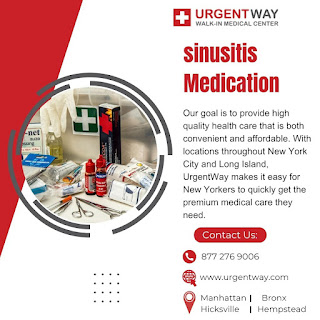How has your psoriasis treatment affected your mental health or emotional well-being?
How has your psoriasis treatment affected your mental health or emotional well-being?
Introduction:
Psoriasis is a long-term autoimmune disease that causes red, scaly areas on the skin that can hurt and itch. Psoriasis is essentially a physical ailment, but it has a profound effect on mental and emotional health in addition to the skin. For many people, managing psoriasis involves negotiating the psychological and emotional obstacles that come with the condition in addition to managing the physical symptoms. This article explores the complex relationship between treating psoriasis and mental health, examining the impact that various therapies can have on emotional health and providing advice on how people can better cope with these difficulties.
The Psoriasis's Psychological Burden:
Psoriasis can be emotionally draining to live with. Due to the disease's
obvious character, social isolation, humiliation, and self-consciousness are
common outcomes. Because of the chronic nature of the illness and the
unpredictable nature of flare-ups, patients may experience anxiety and depression.
These emotions can be made worse by the stigma attached to visible skin
conditions, which can have a serious negative psychological impact.
How Important
Self-Esteem Is:
Self-esteem and physical appearance are tightly related, and psoriasis sufferers
may experience significant effects on their self-esteem. A negative self-image
might result from the persistent, obvious symptoms, which can harm
relationships in both the personal and professional spheres. Patients
frequently express feelings of inadequacy and insecurity, which can impair
their ability to engage with others and their general quality of life.
Treatment for Psoriasis and Its Impact on Mental Health
Topical Interventions:
In order to manage psoriasis, topical therapies are frequently the first line
of defense. These consist of corticosteroids, analogs of vitamin D, and various
ointments and lotions intended to lessen inflammation and limit the
proliferation of skin cells.
Influence on
Mental Well-Being:
Benefits: Psoriasis can be considerably less visible with effective
topical treatments, which can boost confidence and lessen anxiety. Observing
physical progress can give one a feeling of control over their illness, which
improves their mental health.
Consequences: Applying topical therapies on a daily basis may cause
dissatisfaction and stress in certain patients due to its time-consuming
nature. In addition, feelings of sadness and pessimism may arise if the
treatment is ineffective.
Photodynamic therapy:
Under medical supervision, phototherapy entails exposing the skin to UV light.
For moderate to severe psoriasis, this therapy may be beneficial.
Influence on Mental Well-Being:
Benefits: Many patients see a discernible improvement in their skin,
which can lift their spirits and lessen the psychological toll that the illness
takes.
Consequences: Regular phototherapy sessions can be
unpleasant due to the time commitment involved, especially for people with
hectic schedules. In addition, some patients could feel self-conscious about
receiving therapy in general, particularly if it requires them to undress in
front of medical professionals.
Systemic Interventions
In cases with severe psoriasis, systemic therapies such as biologics and oral
medicines are employed. These therapies target the root causes of psoriasis and
reduce inflammation throughout the body.
Influence on Mental Well-Being:
Benefits: Systemic treatments have the potential to significantly alleviate
skin symptoms for a large number of patients, which can significantly improve
quality of life and lessen psychological anguish. Particularly with biologics,
relief and hope might be felt thanks to their efficacy.
Negative
Effects: Anxiety may
arise from the frightening possibility of side effects from systemic therapies.
Patients frequently worry about the effects of these medications on their
general well-being as well as potential long-term health hazards. In addition,
having to get frequent injections or infusions can be inconvenient and
stressful.
Coping Mechanisms for Mental Health Issues
Establishing a Network of Support
Having a solid support network is essential for psoriasis emotional impact
management. Family, friends, medical professionals, and support groups can all
fall under this category. Feeling supported by those who have been there before
and have shared experiences may be incredibly relieving.
Advice:
Join online or in-person psoriasis support groups to meet people going through
similar experiences.
Tell your loved ones and friends the truth about your health.
Procedural Expertise In SkinTreatment:
At UrgentWay, our healthcare
providers are equipped to perform various medical examinations and skin
procedures related to skin disorders, UV damage, and aging. We offer allergy
testing, which involves pricking the skin with a small amount of an allergen to
determine if a reaction occurs. Additionally, we provide photodynamic treatment
(PDT), a type of light therapy that can be used to treat acne and other skin
disorders by eliminating germs. Our providers can also remove skin cysts
through drainage or a minimally invasive procedure.
Conclusion:
In conclusion,
it's critical to recognize and manage the effects of psoriasis treatment on
mental health. To create a supportive atmosphere that promotes both physical
recovery and emotional resilience, healthcare practitioners, patients, and
support networks must work together. By adopting this all-encompassing
strategy, we can make sure that people with psoriasis have happy, emotionally
balanced lives in addition to successfully managing their symptoms.




Comments
Post a Comment